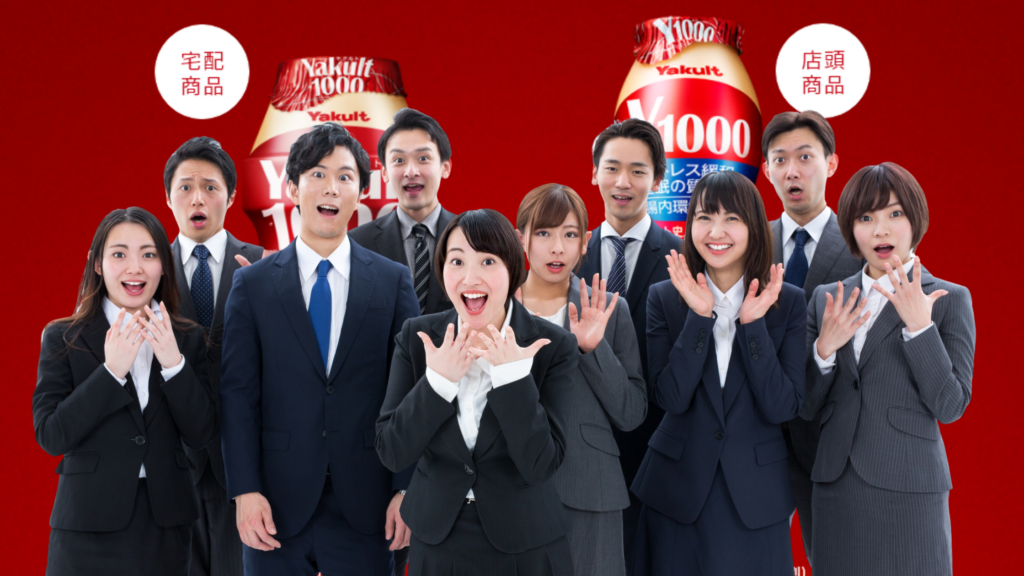[ad_1]
People worldwide are always looking for new ways to stay healthy in today’s stressful world. And companies are willing to oblige by creating new products that they pray will become The Next Big Thing.
Japan is no different. From energy drinks to vitamin elixirs, Japanese stores and pharmacies are chock full of products designed to get you through your workweek.
But one long-running Japanese firm seems to have hit the jackpot with its latest offering. Users on social media speak of it like it’s a miracle drug. Unfortunately, it’s so popular that practically no one can get a hold of it.
The cult of Yakult
The company in question is Yakult (Japanese: ヤクルト). The origins of the company date back to 1930 and the work of medical doctor and researcher Shirota Minoru (代田稔). In 1930, Shirota discovered the anaerobic strain of lactobacillus casei that now bears his name (シロタ株; Shirota strain)[1]. Shirota’s aim was the discovery of new preventative medicines: “The important thing is not to treat disease, but to prevent contracting it.”[2]
In 1935, Shirota developed a fermented milk drink containing the Shirota strain and named it Yakult. Three years later, he trademarked the name.
The rest, as they say, is history. The company boasts robust sales within Japan over the past 80 years. It’s also made progressively larger strides overseas. Today, international sales account for over 40% of its total business.
It’s over 1000!
Research seemed to indicate that higher doses of Shirota strain could have a positive effect on both stress levels and quality of sleep. Click To Tweet
Over the years, Yakult has released new versions of its products to continue stimulating demand. Some products tout additional vitamins and minerals. Others, however, distinguish themselves by the amount of Shirota strain they contain. For example, Yakult 400, released in 1999, boasted 40 billion colony-forming units.
However, last April, Yakult decided to kick it up a notch and released Yakult 1000 for home delivery sales. Later in the year, the company released a similar product, Y1000, for in-store purchase.
A company spokesman says the product is the result of research the company conducted after the release of Yakult 400. Around that time, researchers became intrigued by the connection between gut health and mental health. Research seemed to indicate that higher doses of Shirota strain could have a positive effect on both stress levels and quality of sleep. The company released Yakult 1000 to raise consumer awareness of this relatively unknown effect.[3].
As the name implies, the new drink packs a punch of 100 billion units. And users say they can feel it. Many users report a positive effect on their stress levels after regularly drinking Yakult 1000. A large number of Twitter users claim the elixir has a remarkably positive effect on the quality of their sleep.
Mind you, some also say it gave them wicked bad dreams. But even many of those users say they slept more deeply thanks to Yakult 1000.
A little too successful?

Economically, Yakult 1000 and Y1000 are smashing successes. Word of mouth about the product spread rapidly after comedian Matsuko Deluxe said they were a habitual drinker[7]. Yakult posted a record profit in March 2022, spurred in large part by Yakult 1000[4].
Unfortunately, Yakult couldn’t predict just how much of a hit they’d have on their hands. The product has become so popular that many people can’t even find it in stores. Desperate users have been using social media to share tips on how to get their fix of the now-scarce miracle elixir. (Apparently, you can score Yakult 1000 more easily from vending machines in and near train stations[5].)
The rush has left Yakult scrambling. The company says they’re planning to amp up production of both Yakult 1000 and Y1000 in July. However, a PR spokesperson admits they don’t know whether even that will be enough to meet demand[6]. (I bet Japan’s milk industry wishes it had the same problem.)
Is it really effective?
Of course, the key question is: does Yakult 1000 really work? Or is this just a mass placebo effect?
At least one expert, Akiyama Motohisa from the Fukushima Tenjin Internal Medicine Clinic, says yes, and explains the mechanism at work:
「乳酸菌が腸に達すると、セロトニンというホルモンの分泌が活性化されます。このホルモンを材料にして、メラトニンという物質が作られ、ストレス緩和や眠りの質の向上に役立つのです。『ヤクルト1000』には、従来の製品と比べて高密度の乳酸菌シロタ株が含まれているとされているので、腸に効果的に働きかけているのでしょう。乳酸菌シロタ株は、大腸がんや大腸ポリープの予防効果があることでも知られています」
When lactic bacillic acid hits the intestines, it stimulates the excretion of the hormone seratonin. This hormone acts as the raw material for creating melatonin, which is useful in stress relief and increasing sleep quality. Since Yakult 1000 has a higher concentration of Shirota strain bacteria than previous products, it likely has a stimulating effect on the intestine. We’ve seen that Shirota strain is also effective in preventing colorectal cancer and polyps.
However, Dr. Akiyama warns that Yakult also packs a wallop of sugar. People with diabetes or high blood pressure, he says, should be careful not to overconsume it.
So if you live in Japan and are looking for a new sleep aid, keep an eye out for Yakult 1000/Y1000 in stores and vending machines near you. Because chances are it’ll be gone before you can blink.
What to read next
FamilyMart Rainbow Socks Arrive In Continuation Of LGBTQ+ Inclusivity Efforts
Footnotes
[1] ヤクルト. Wikipedia JP
[2] 知れば知るほど「シロタ株」. Yakult
[3] 「ビビるくらい目が覚める」「生活クオリティ上がった」 品薄続く「ヤクルト1000」なぜ、いつから人気に? 「悪夢を見る」ウワサについても聞いてみた. Netorabo
[4] ヤクルト22年3月期、純利益最高 「ヤクルト1000」好調. Nikkei
[5] 「ヤクルト1000」見つかる「穴場」情報 山手線のホームで買える説を検証.
[6] 売り切れ続出のヤクルト「Y1000」、7月をめどに増産へ 安定供給なるか. ITMedia
[7] 医師も絶賛する「ヤクルト1000」はなぜスゴい? その科学的根拠. Gendai Business
[ad_2]
Source link


